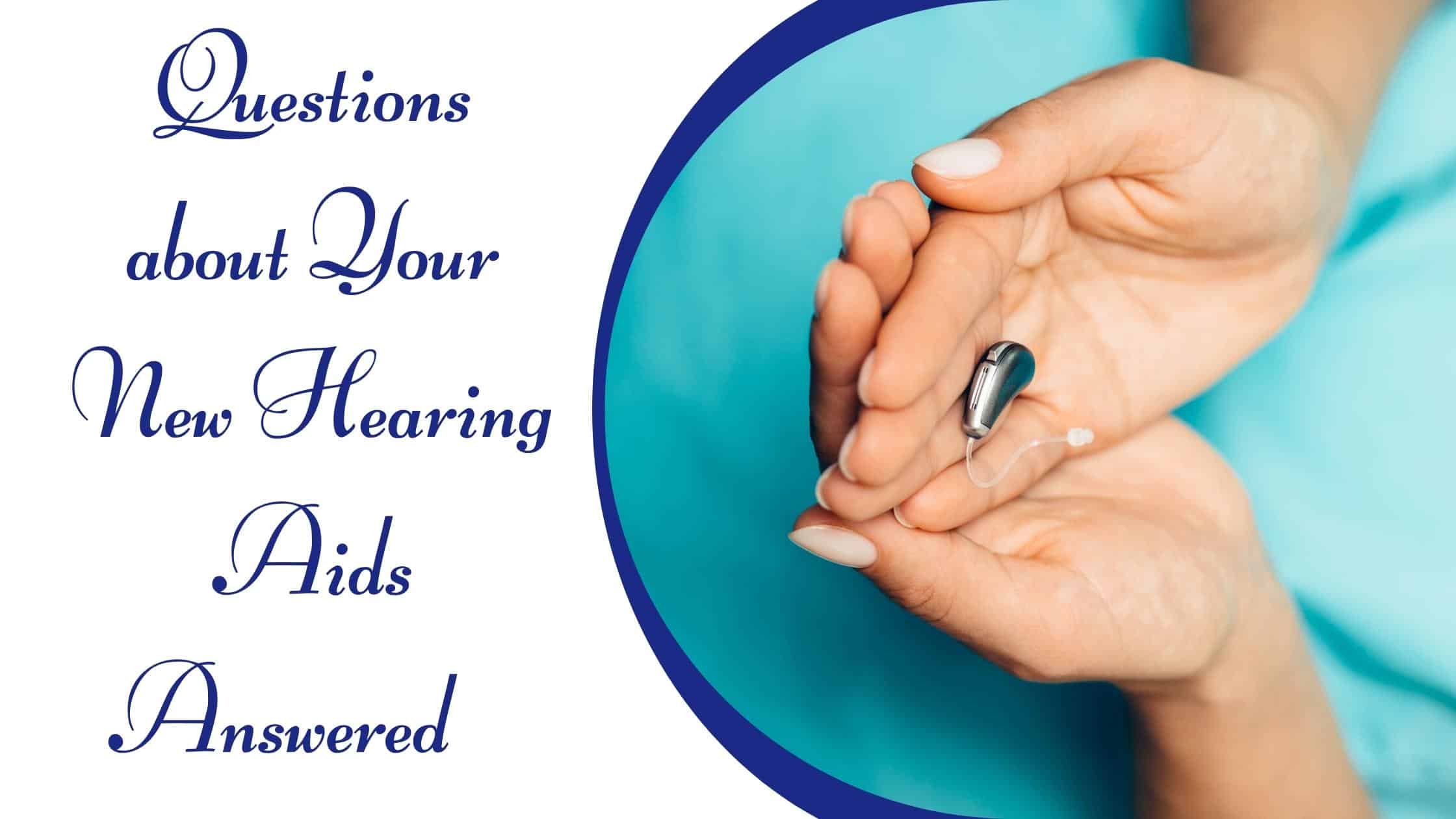
Hearing aids are an incredibly important investment in your health. If you are new to hearing aids, the answers to commonly asked questions can be a helpful way to orient yourself to using and maximizing your new device!
Will my hearing return to normal?
Hearing loss can be effectively managed but hearing loss is a life-long condition that does not have a cure. This means that hearing aids work to maximize hearing capacity rather than restore hearing. Hearing aids are designed to detect, amplify, and process sound which provides the auditory system – the sensory system that includes the ears and brain which work together to process speech and sound. This support allows people to hear much more clearly and with greater ease. With hearing aids, people are often able to hear sounds they haven’t heard in a long time. Hearing aids also alleviate common symptoms caused by hearing loss (tinnitus, slurring and distorting of sounds, etc.) which also enables people to hear better. It is important to remember that you could experience hearing challenges in environments with more background noise which is common, even for people without hearing loss.
How often do I need to wear my hearing aids?
Hearing aids provide critical support that helps people navigate daily life with more awareness and safety. It is important to wear hearing aids during waking hours with the exception of in the shower – hearing aids should be safely removed and ears thoroughly drained before reinserting your device. Be sure to store your hearing aids in a nearby and accessible area while you sleep in the case of an emergency. Today’s hearing aids have numerous features that are designed to allow the device to easily integrate into daily life. This means seamless use during a broad range of activities and settings which enhance sound quality and communication.
How much maintenance do my hearing aids need?
Properly maintaining your hearing aids is necessary for the quality and longevity of the device. Hearing aids are worn throughout the day, every day which means that they are impacted by normal wear and tear. Things like earwax, hair, and moisture which the ears naturally produce; can accumulate on hearing aid devices. This can damage the critical components that make your hearing aids work. It is important to thoroughly clean your device so that this debris is fully removed every day. In addition to following cleaning procedures, be sure to properly store your hearing aid device. This should be in a cool area, away from the reach of pets or children. When you receive your hearing aids, your hearing healthcare provider will walk you through best maintenance practices.
Are all hearing aids the same?
Though all hearing aids consist of the same basic components – microphone, amplifier, speaker, and batteries – there is a wide range of styles and features. There are more options today than ever before which offer various hearing aid styles (behind the ear, in the ear, in the ear canal, etc.), colors, technologies, etc. The device that is most suitable for you depends on a few factors including your degree of hearing loss, lifestyle preferences, and interest in different technologies. More recent technologies include Bluetooth connectivity, voice recognition capabilities, and feedback reduction features.
How long will my hearing aids last?
Hearing aids are durable devices and typically last between 5 to 7 years. The average hearing aid wearer replaces their device after 5 years. The longevity of hearing aids depends on how well they are maintained over the years, the specific type of device, as well as technologies that can become outdated as advancements continue to produce newer features.
What should I do if I experience any issues?
Your device will be programmed to your specific hearing needs by your hearing health care provider. If you experience any feedback issues or seemingly odd quirks with your device, you can try the following quick fixes: replace your batteries with a fresh pair, remove your device and clean it well, open and close the battery compartment ensuring that it fully shut, and inspect your device for any cracks or damage to the hardware. If you continue to experience issues after self troubleshooting, be sure to contact us!
